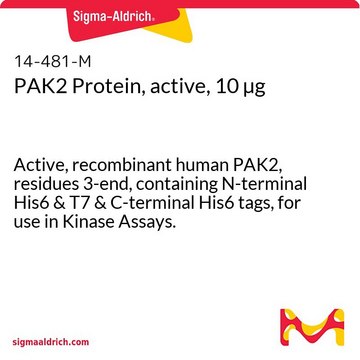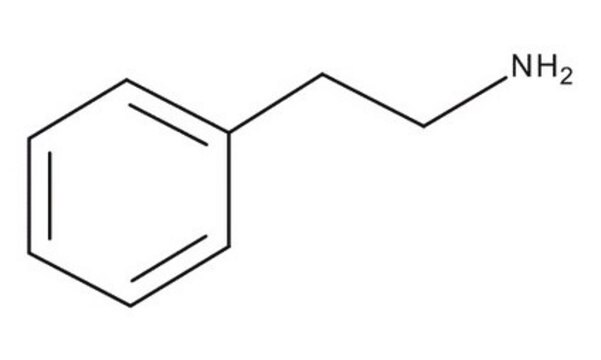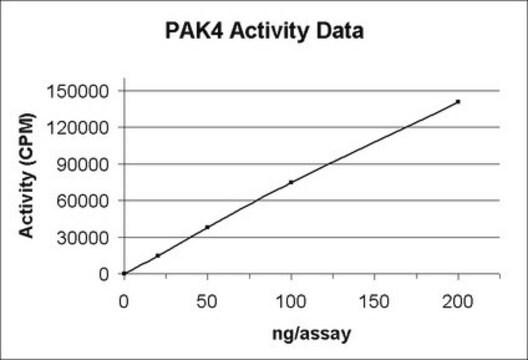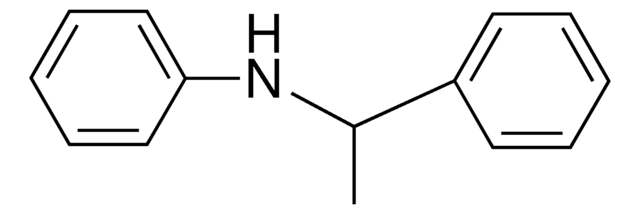14-683-M
PAK3 Protein, active, 10 µg
Active, C-terminal 6His-tagged, recombinant, human full length, PAK3. For use in Kinase Assays.
About This Item
Recommended Products
biological source
human
Quality Level
100
300
recombinant
expressed in baculovirus infected Sf21 cells
mol wt
Mw 63.2 kDa
manufacturer/tradename
Upstate®
technique(s)
activity assay: suitable (kinase)
NCBI accession no.
UniProt accession no.
Gene Information
human ... PAK3(5063)
General description
mitosis
Application
Inflammation & Immunology
Biochem/physiol Actions
Quality
Physical form
Storage and Stability
Other Notes
Legal Information
Disclaimer
Signal Word
Warning
Hazard Statements
Precautionary Statements
Hazard Classifications
Skin Sens. 1
Storage Class Code
12 - Non Combustible Liquids
WGK
WGK 2
Flash Point(F)
Not applicable
Flash Point(C)
Not applicable
Regulatory Listings
Regulatory Listings are mainly provided for chemical products. Only limited information can be provided here for non-chemical products. No entry means none of the components are listed. It is the user’s obligation to ensure the safe and legal use of the product.
PDSCL
Deleterious substance
JAN Code
14-683:
14-683M:
Certificates of Analysis (COA)
Search for Certificates of Analysis (COA) by entering the products Lot/Batch Number. Lot and Batch Numbers can be found on a product’s label following the words ‘Lot’ or ‘Batch’.
Already Own This Product?
Find documentation for the products that you have recently purchased in the Document Library.
Our team of scientists has experience in all areas of research including Life Science, Material Science, Chemical Synthesis, Chromatography, Analytical and many others.
Contact Technical Service